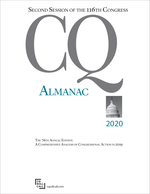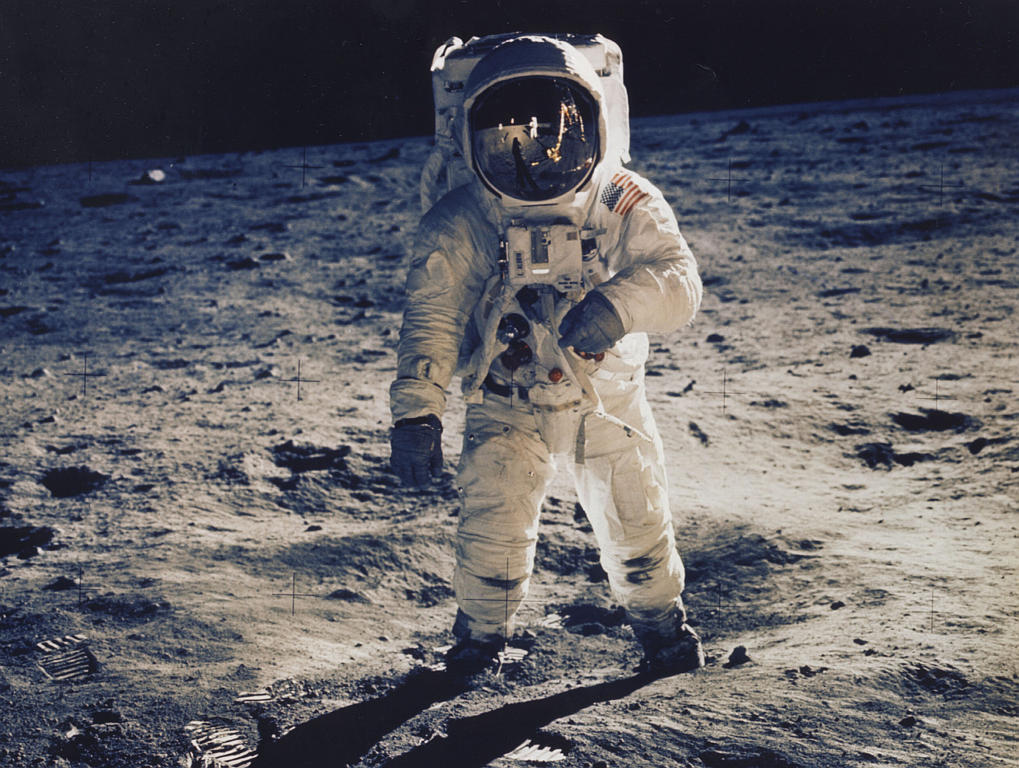
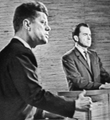 1960
1960
The Kennedy-Nixon debates cemented television's position as the essential new medium for American political discourse. 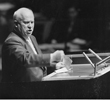 1961
1961
Soviet Premier Nikita Khrushchev publicly denounced U.S. policies at on several occasions in 1960, and his outbursts at the United Nations attracted notoriety. 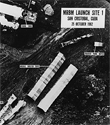 1962
1962
The presence of Soviet missiles in Cuba within striking distance of United States provoked an international crisis which briefly raised the prospect of nuclear war.  1963
1963
The November assassination of President Kennedy shocked the American public. Vice president Lyndon Johnson was promptly sworn in as president aboard Air Force One. 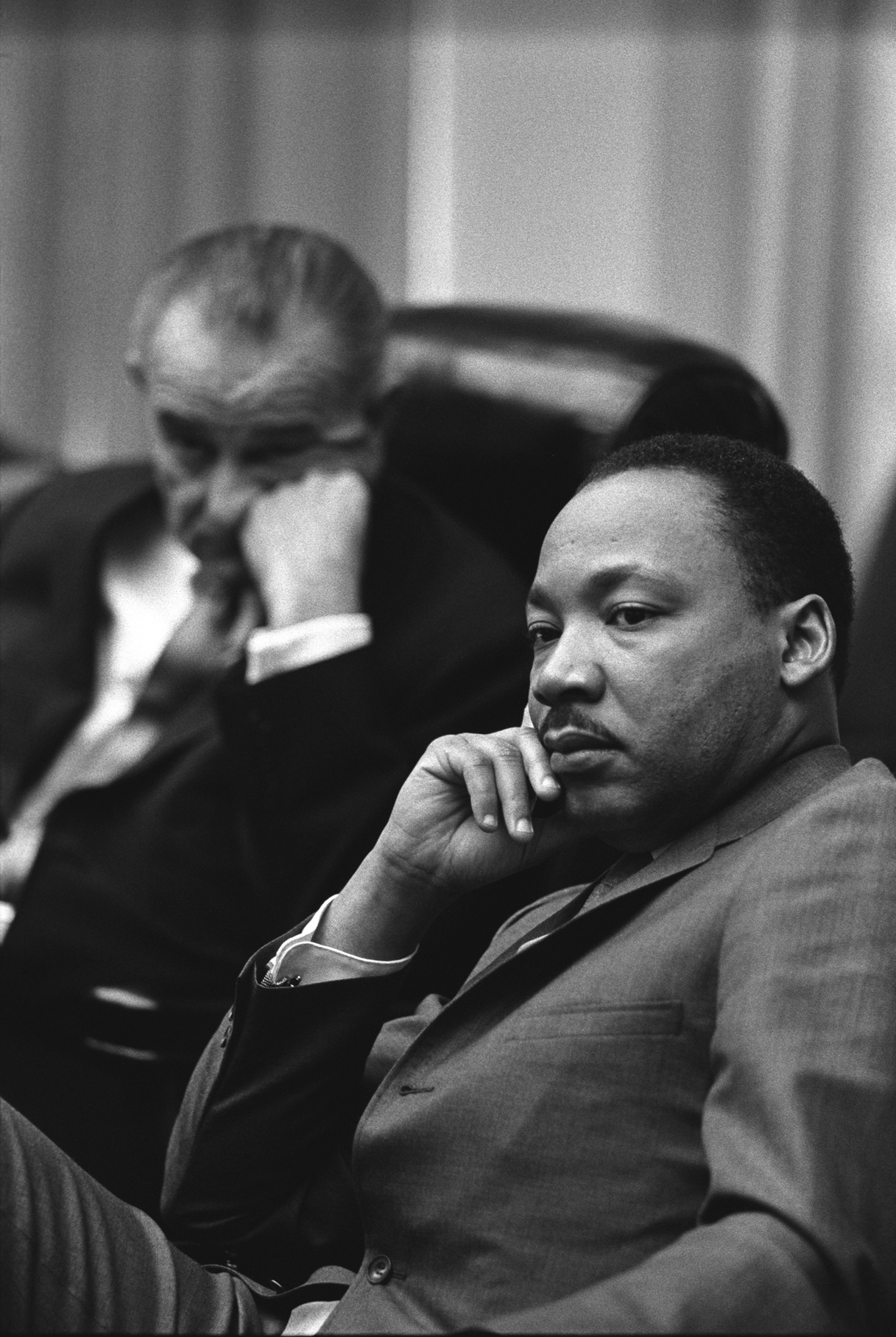 1964
1964
The landmark Civil Rights Act of 1964 passed, mandating desegregation in public places. Martin Luther King Jr. received the Nobel Peace Prize in the same year.  1965
1965
President Johnson expanded and promoted Great Society programs, intended to
reduce poverty following initiation of his "War on Poverty" in 1964. 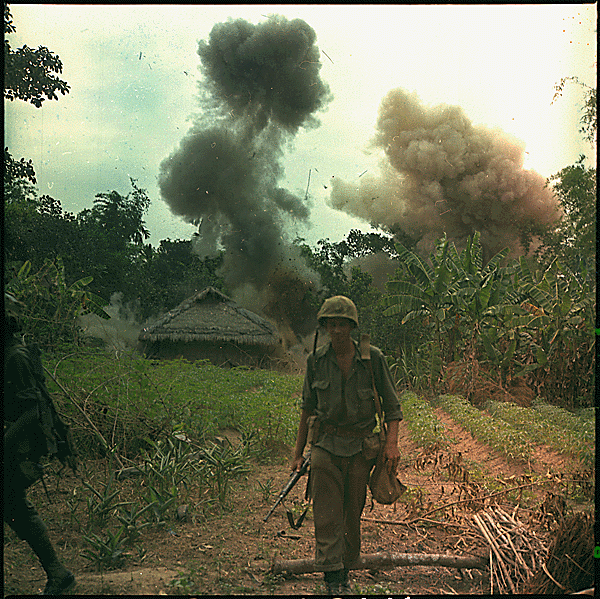 1966
1966
The Vietnam War was one of the most divisive conflicts in American history.
Political indecisiveness and loss of public support were key contributing
factors to America's eventual withdrawal. 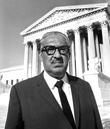 1967
1967
Thurgood Marshall became the first African American to be appointed to the Supreme Court. 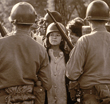 1968
1968
The presidential candidates debated the merits of the Vietnam War, and the Democratic convention in Chicago became a byword after violent clashes between protestors and police during anti-war riots. |
|









